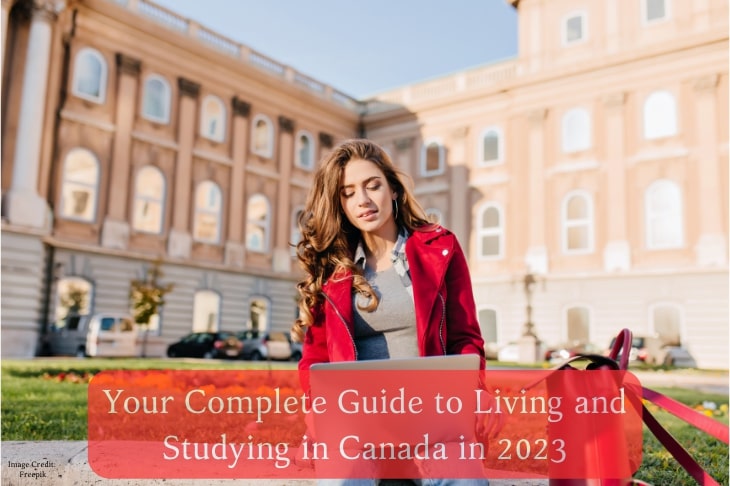Canada is a wonderful place to live and study. It is known to be welcoming and friendly to immigrants and international students. This guide will cover everything you need to know about living and studying in Canada, from visa requirements to finding accommodation.
Study Permit and Visa Requirements
Before you can study in Canada, you will need a study permit. A study permit is a document issued by the Canadian government that allows foreign nationals to study in Canada. You must have been accepted into a designated learning institution (DLI) in Canada before you can apply for a study permit.
When choosing a program, consider the following factors:
- Interest: Choose a program that interests you and that you are passionate about.
- Career goals: Choose a program that will help you achieve your career goals.
- Skills: Choose a program that will help you develop the skills you need for your future career.
- Flexibility: Choose a program that allows you to explore different areas of study and that is flexible enough to accommodate your interests.
To apply for a study permit, you will need to provide the following:
- Proof of acceptance from a DLI
- Proof of financial support
- A valid passport or travel document
- A letter of explanation
- Two recent passport-size photos
- A receipt for the application fee
In addition to a study permit, you may also need a visa or an electronic travel authorization (eTA) to enter Canada. The visa or eTA will depend on your country of origin. You can find out if you need a visa or eTA by visiting the Canadian government website.
To apply for a visa or eTA, you will need to provide the following:
- A valid passport or travel document
- Proof of financial support
- A letter of explanation
- Two recent passport-size photos
- A receipt for the application fee
Read the full checklist here.
It is important to apply for your study permit and visa or eTA well in advance of your departure date. Processing times can vary depending on the time of year and the country you are applying from. You also need to prepare for your Canadian student visa interview.
Also read: Canadian Study Permit For Indians: What You Need To Do Now For The 2023 Intake
Finding Accommodation
Once you have your study permit and visa or eTA, it is time to start thinking about accommodation. There are several options available to international students, including on-campus housing, homestays, and off-campus rentals.
On-campus housing is available at most universities and colleges in Canada. It is often the most convenient option as it is located close to classes and other campus facilities. However, on-campus housing can also be more expensive than other options.
Homestays are another popular option for international students. A homestay is where you live with a Canadian family while you study in Canada. It is a great way to learn about Canadian culture and practice your English or French language skills. Homestays are often more affordable than on-campus housing.
Off-campus rentals are also available in most cities and towns in Canada. They can range from apartments to shared houses. Off-campus rentals can be more affordable than on-campus housing, but you will need to factor in the cost of transportation to and from campus.
When looking for accommodation, it is important to start your search early. You should also be prepared to pay a deposit and provide references or a credit check.
Health Insurance
In Canada, healthcare is publicly funded and available to all residents. However, international students are not covered by the public healthcare system and will need to purchase private health insurance.
Most universities and colleges in Canada offer health insurance plans for international students. These plans often cover basic medical services, such as doctor visits and hospitalization, as well as prescription drugs and emergency dental care.
It is important to purchase health insurance before you arrive in Canada. You may be asked to provide proof of insurance when you apply for your study permit.
Working in Canada
As an international student, you can work in Canada while studying. However, there are restrictions on the number of hours you can work.
If you have a study permit, you are allowed to work up to 20 hours per week during the academic year and full-time during scheduled breaks, such as summer holidays. You do not need a separate work permit to work while you study.
Conclusion
Canada is one of the most welcoming and multicultural countries in the world, making it a popular destination for international students. From stunning natural landscapes to world-class universities, Canada offers a high quality of life and an excellent education system. If you’re considering living and studying in Canada, this guide will help you.
To apply for your study permit, click here.
To discuss immigration requirements, connect with one of our consultants here.

